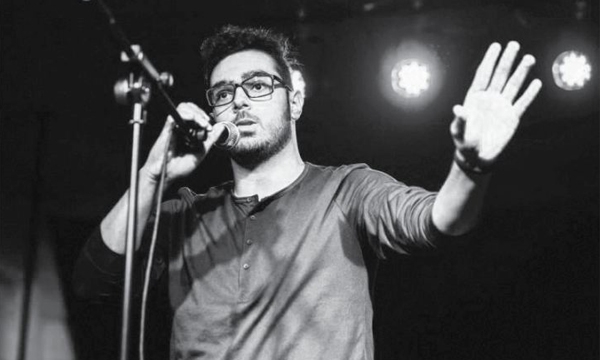Beirut’s poetry slams : A revolution in free verse
In one of Beirut’s busiest cafes, 50 young people gather every Wednesday to listen to peers who describe themselves as poets. The event, called Sidewalk, features poetry in Arabic and English and youthful writers, many of them not yet 16 years old and still at school. The poets read energetically, in open-mic-style; the audience listens intently, responding as needed.
Clearly, poetry is not dead in the digital era. These poets, from Syria, Lebanon and the United Kingdom, are part of a new wave in the city — poetry as performance. The Wednesday poetry slams are increasing in popularity across Beirut and Sidewalk recently organised a regional poetry slam. The competition was put together in collaboration with Roundhouse, a British performing arts and concert venue. The winner will represent the Middle East at the World Poetry Slam in Paris in 2019. Sidewalk organisers said they hope there will be a regional slam every year. Two years ago, a regional poetry competition was organised by Roundhouse but there was no follow-up in 2017. Lisa Luxx, an award-winning British-Syrian poet and a judge at the regional slam, said Sidewalk is a sign of the times. “Young people are reclaiming poetry to speak their concerns and to shift the social conversation,” she said.
Sidewalk poets cover sensitive subjects, such as mental health, sexuality, feminism and politics. At each session, slammers read and respond to their fellow poets in a spirit of camaraderie. No one is regarded a superstar; everyone gets a hearing. The slams are considered a safe space to share experiences. Carmina Khairallah, a poet and member of the Sidewalk Organisation Committee, said: “The poets come to share frustration and sadness. They search for compassion and empathy. This ‘me-too’ feeling is cathartic. It helps many younLynn, a 20-year-old psychology and politics student, who started performing at Sidewalk two years ago, agreed that the sessions are uplifting. “I write about society and the system not giving you space to think andfeel,” she said. “I do not only want to think about what to eat and where to go. I want to think about my identity and my transitions in life.” Many slammers say they are on a journey of self-discovery. The poets refuse to consider many of the most basic rules of poetry, such as rhyming, syllabic rhythm and form. The poems have no particular structure. The only thing that matters is that it strike a chord with the audience.
“Our performers are already excellent at their craft,” said Maysan Nasser, the driving force behind the competition. Nasser won the 2016 regional poetry competition and wants to give other young poets the chance to succeed. The Sidewalk committee runs workshops that help performers work on voice and body language and learn how to command the scene and the moment. Sidewalk expects to start to spawn a clone of itself in southern Lebanon. In Saida, 40km south of Beirut, a new community of poets will be encouraged to write and perform.
Mohammad Rashid, a poet in Saida, said he was delighted. “We are hoping this will put a spotlight on hidden talent,” he said. “It will provide encouragement to poets who doubt their writings or are afraid to take the stage.” No one is sure the slams will be a success anywhere other than in Beirut. “If I did not live in Beirut, I would not have been able to write,” Lynn said. “The intensity of this place nurtures this creative process.” Even so, the Sidewalk committee said it plans to connect with other Arab countries to share its experience of an unexpected success story in free verse.
Related Posts

